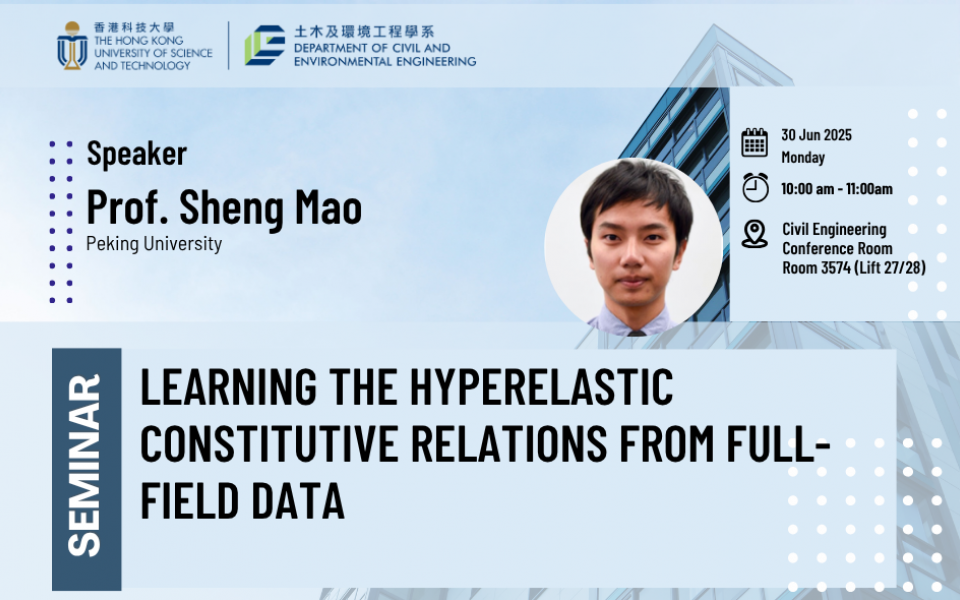Civil Engineering Departmental Seminar - Learning the hyperelastic constitutive relations from full-field data
Supporting the below United Nations Sustainable Development Goals:支持以下聯合國可持續發展目標:支持以下联合国可持续发展目标:
Learning the hyperelastic constitutive relations from full-field data
Machine learning (ML)-based constitutive models have significantly enhanced the capacity to characterize the complex constitutive relations of materials, such as polycrystals, soft materials, etc. However, constructing such ML-based constitutive models, with the correct physical constraints remains a challenge, especially from experimentally measurable data. In this work, we propose a physical-augmented neural network (PANN) constitutive model that satisfies the objectivity, material symmetry (isotropic), polyconvexity, growth condition and stress-free condition by construction. With all these constraints in place, a hybrid finite element method-neural network (FEM-NN) optimization framework was developed to calibrate the PENN model based on the full-field displacement and external load data. Numerical and experimental data from isotropic hyperelastic materials were used to test the performance of the PANN model. Only a single uniaxial test is required for generating the training data. Results show that the PENN architecture can identify the unknown constitutive relationships of real-world materials with high accuracy and efficiency. The methods in this work is general and can be extended to a wide class of materials.
Sheng Mao received his B.S. degree in Theoretical and Applied Mechanics from Peking University in 2011 and Ph.D. degree in Applied Mechanics from University of Pennsylvania in 2016. He then worked as a Postdoctoral Research Associate in Princeton University until 2020 when he joined Peking University as an Assistant Professor. His research interest mainly lies in the mechanics and physics of soft materials, multiscale methods, constitutive modelling and computational mechanics.
